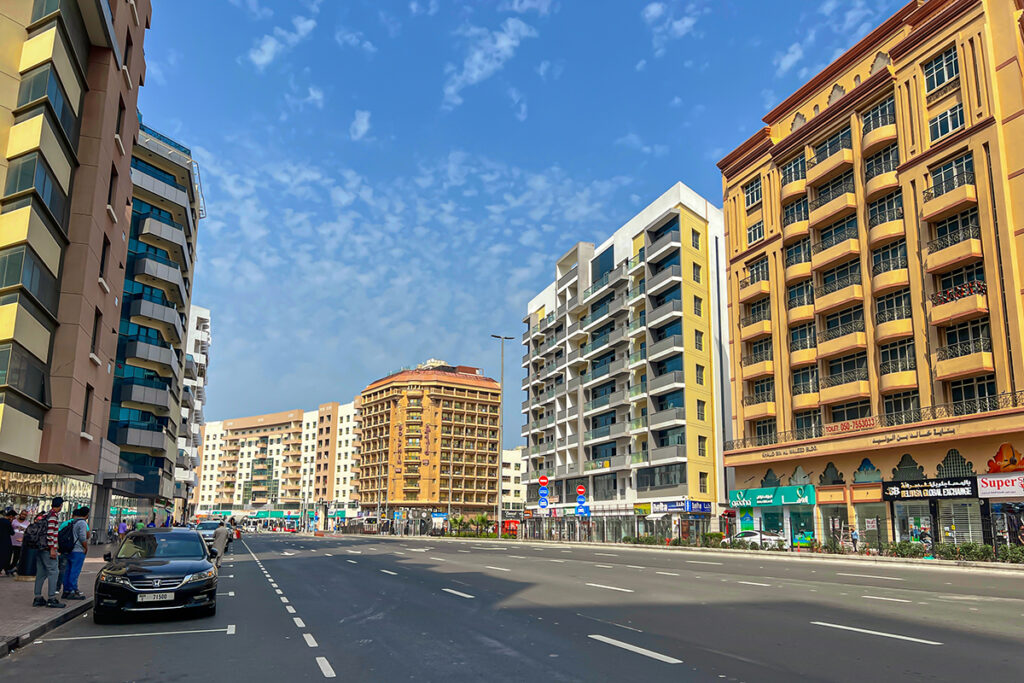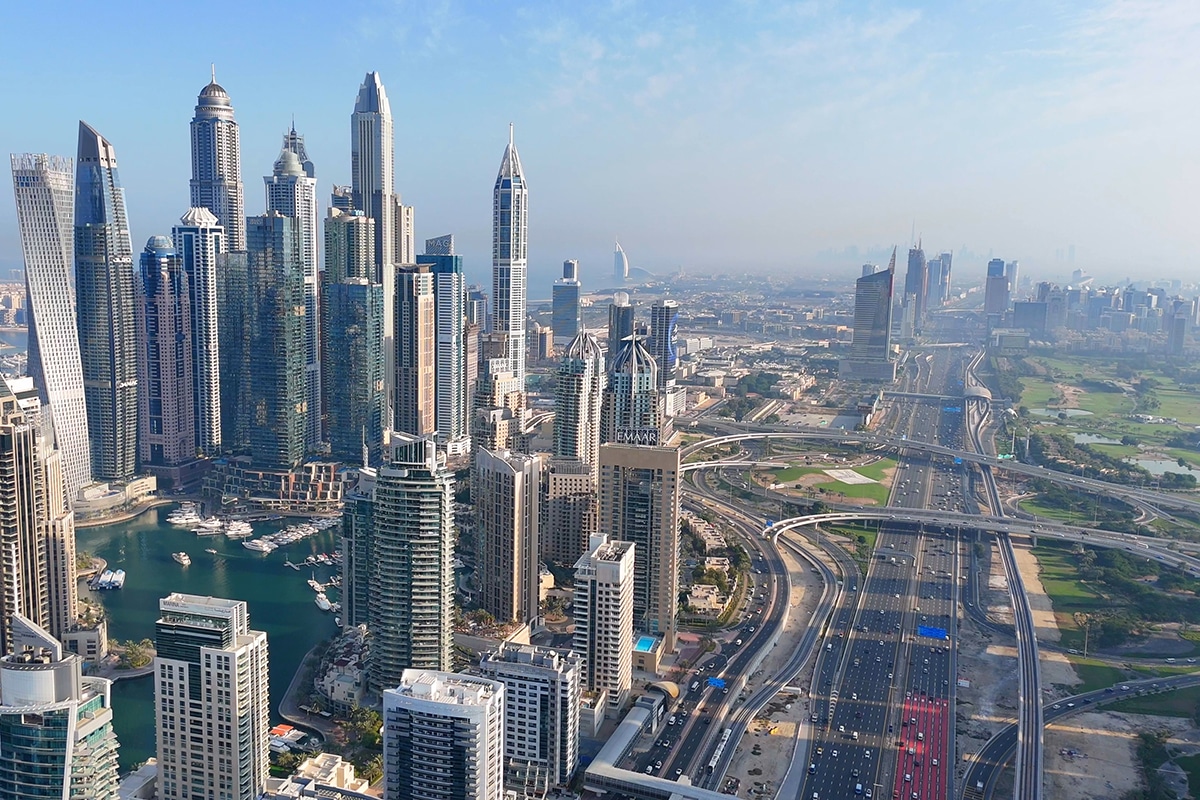Yet, the practice continues to remain common in parts of the city, real estate experts told Arabian Business, driven by rising rents and demand for affordable housing.
Authorities have ramped up inspections in recent months, targeting unlicensed shared housing and warning of safety risks, overcrowding, and violations of building codes. That said, knowing the rules is critical to avoid fines, eviction, and legal disputes – for tenants and landlords alike.
So, what exactly is considered illegal subletting or partitioning in Dubai?
PP Varghese, Head of Professional Services at Cushman & Wakefield Core, defines illegal subletting as the act of tenants renting out parts of their leased property without proper authorisation from the landlord or relevant authorities.
“Specifically, this includes converting living rooms, balconies, or storage areas into bedrooms, installing makeshift partitions that block emergency exits, or subdividing units beyond their approved capacity. Dubai Municipality’s regulations are clear that any structural changes require proper permits and must comply with fire safety, ventilation, and occupancy standards,” he told Arabian Business.
Echoing the sentiment, Svetlana Vasilieva, Head of Sales – Secondary, at Metropolitan Premium Properties explained that “a tenant cannot sublet or share an apartment without written permission from the landlord.”
She added that many tenants sublet properties temporarily to avoid breaching contracts during relocation or to share rent costs in high-rent areas.
Why does illegal subletting continue?
Varghese pointed to economic conditions that make unauthorised subletting attractive to both tenants and landlords.
“The fundamental issue is an economic arbitrage opportunity created by Dubai’s rental market dynamics,” he said, adding that residents often prioritise access to soft infrastructure such as retail outlets, public transport, schools, healthcare facilities, and employment hubs.
These amenities are typically found in central locations, which also come with high rental prices.
“For tenants, sharing the cost of a centrally located unit makes premium areas accessible at individually affordable rates. For landlords, subdividing units allows them to achieve rental yields significantly higher than standard lease rates – sometimes 150–200 per cent of normal rental income for the same space,” Varghese said.

According to Varghese, the economic incentives are “powerful enough” that some landlords and tenants are willing to accept regulatory risks.
Vasilieva also agreed that affordability plays a role. “There are multiple reasons such as lack of awareness about the regulations, rent affordability – especially in high rent areas by sharing the cost of rent. Often, tenants need to relocate temporarily and in order not to breach the rental contract, the apartment is being sublet for a short period of time,” she said.
Which Dubai areas are most affected?
Older parts of Dubai report high levels of unauthorised subletting and partitioning, both experts said.
According to Vasilieva, areas such as Al Rigga, Deira, and Satwa are among the most affected. She also noted that villas in Jumeirah and larger apartments in Dubai Marina are commonly sublet, especially by younger bachelors and new arrivals.
In addition, Varghese explained that the areas most affected are “typically those that offer the best combination of central location, soft infrastructure access, and rental arbitrage opportunities.”
Parts of Bur Dubai, Sheikh Zayed Road, and Jumeirah Lake Towers are also locations with “see significant illegal subletting activity.”
Aside from this, Varghese also listed mid-tier areas with affordable base rents but strong connectivity, including Al Qusais, International City, Discovery Gardens, and parts of Business Bay.
“Interestingly, we’re seeing increasing violations in newer developments across various emirates where the economics work favourably – areas that combine reasonable base rental rates with strong connectivity to employment centres and urban amenities,” he said, adding that the pattern consistently follows “locations where the gap between individual affordability and area desirability creates the most profitable arbitrage opportunities for landlords.”
What are the legal consequences?
There is a clear legal framework in Dubai on the matter. Article 25 (1)(b) of Law No. 26 of 2007 states that unauthorised subletting is a breach of contract.
“This entitles the landlord to seek eviction of both the tenant and subtenant,” Vasilieva said, adding that if the sublease generates higher revenue than the original tenancy agreement, landlords must file a case at the Rental Dispute Centre to recover the financial difference between the revenue earned from the sublease and the rent stipulated in the original tenancy agreement.
“The landlord may pursue a claim for compensation, these are in addition to any orders issued,” she said.

Varghese added that penalties for violations can include fines of up to AED 50,000, with additional fines for overcrowding starting from AED 10,000 per incident. However, there are more repercussions than just a penalty, he added.
“Violations create a documented history with authorities that can complicate future property management and leasing activities,” he said.
“Properties with a history of illegal partitions or overcrowding may face higher scrutiny, lower valuations, and difficulty in sale. Insurance claims may be denied for properties with unauthorised modifications, and owners may face civil liability for safety incidents.”
What are the other risks?
Another risk is safety concerns – a major issue highlighted by the experts. Varghese explained that illegally partitioned units often result in overloaded electrical systems, blocked fire exits, and inadequate ventilation.
“In emergencies, these unregulated layouts can be life-threatening,” he said, adding that the Civil Defense has “repeatedly flagged illegal partitions as a fire hazard.”
Vasilieva further explained blocked ventilation and emergency exits are among the most common safety risks in such units.
Are tenants aware of what is legal?
“It’s a responsibility of the landlord to inform the tenants what is allowed in a shared house,” Vasilieva said, stressing that clear terms and conditions should be outlined in tenancy agreements.
“Many new expats don’t realise that sharing a flat is only legal when the landlord consents and partitions are approved,” Varghese said, adding that lack of awareness often leaves tenants vulnerable to eviction, even if they have paid rent on time.
However, regular inspections carried out by Dubai Municipality has reduced the opportunities for illegal subletting.
“Dubai Municipality conducts regular inspections and responds to public complaints. Enforcement has strengthened, but given the demand for low-cost housing, some illegal setups persist,” he explained, concluding that recent efforts to digitise building permits and track inspections are helping to close enforcement gaps.

